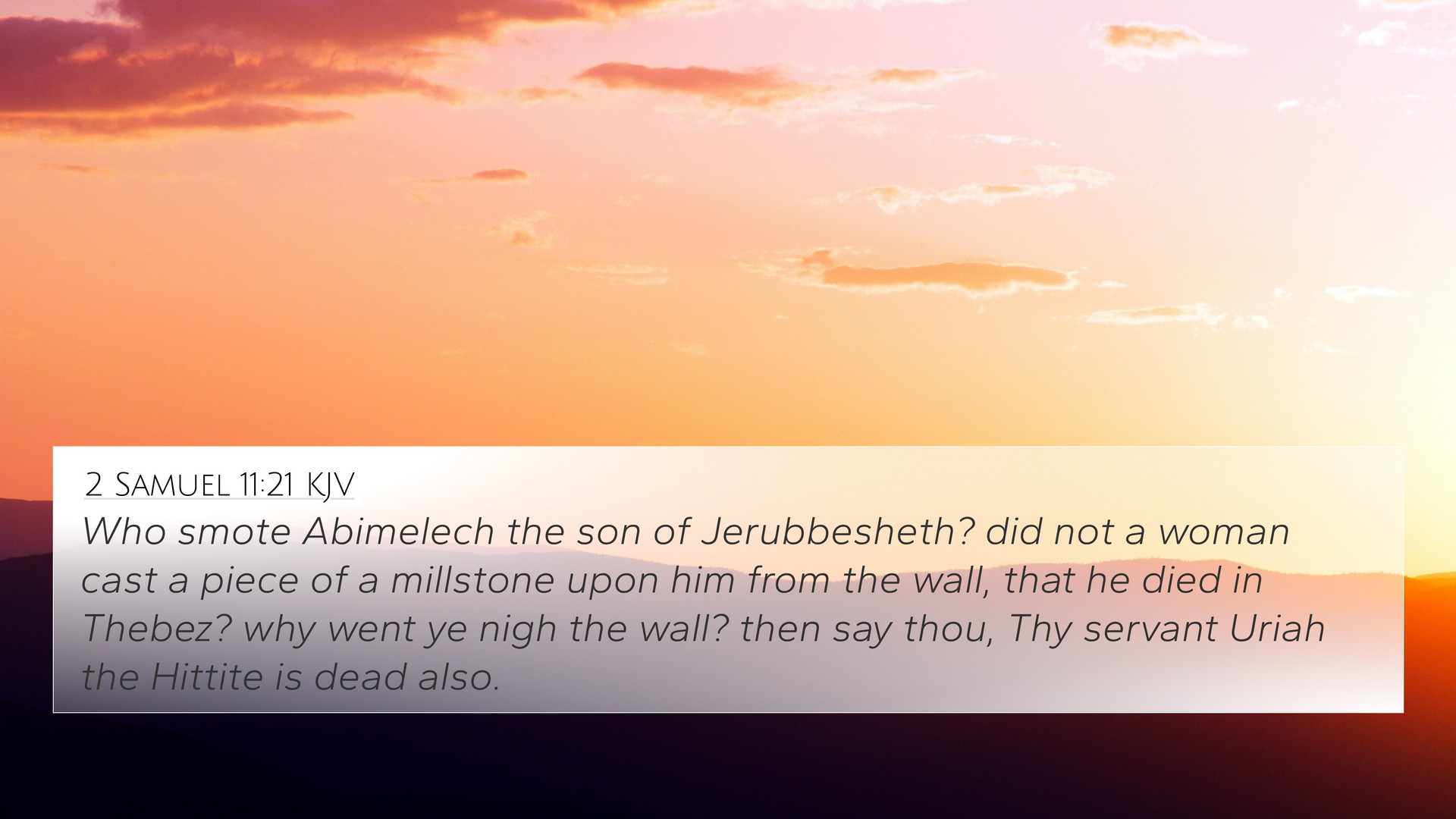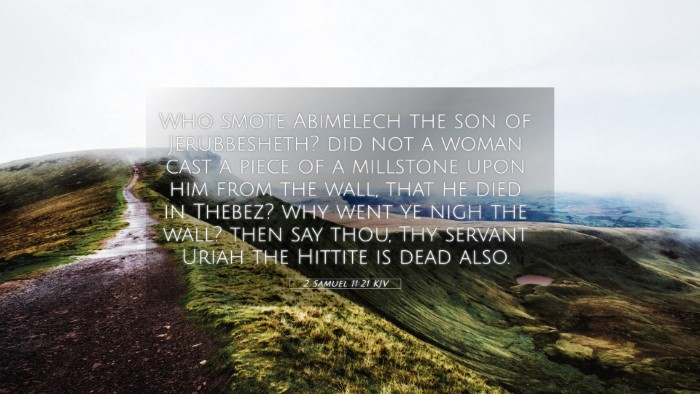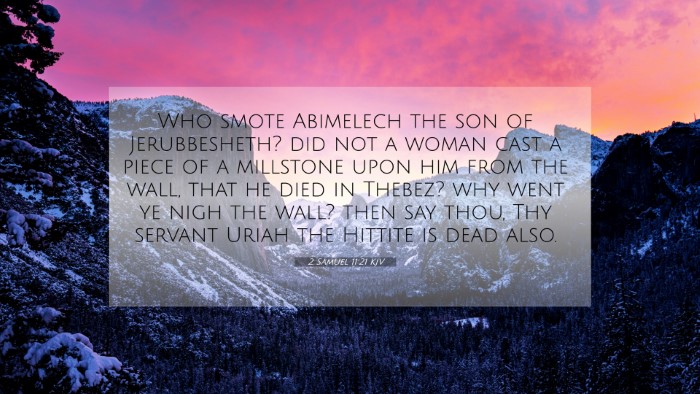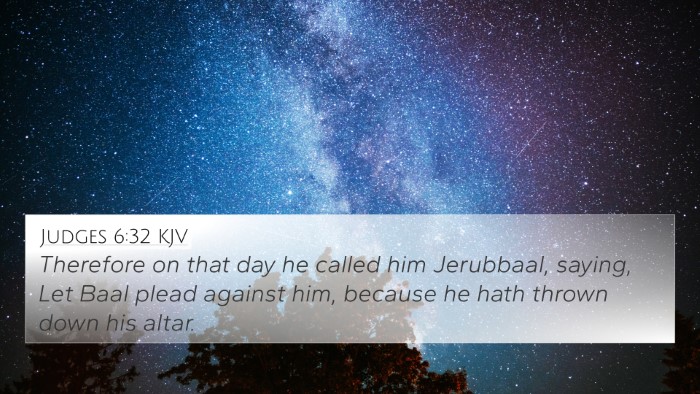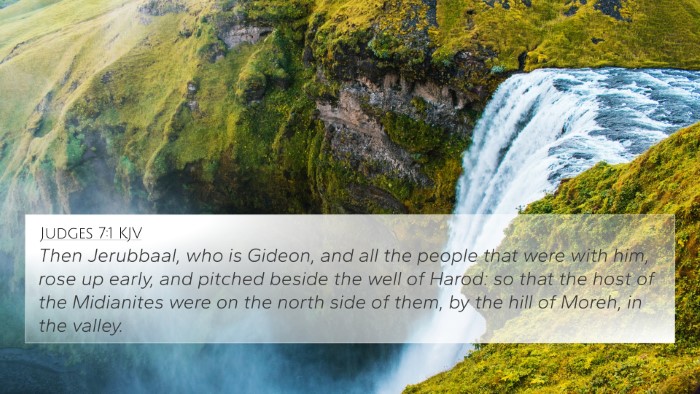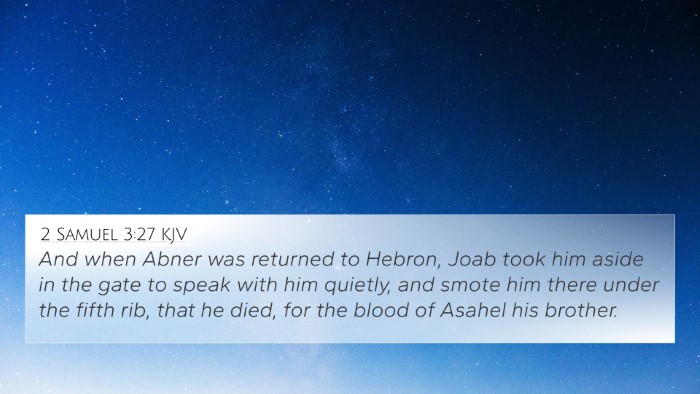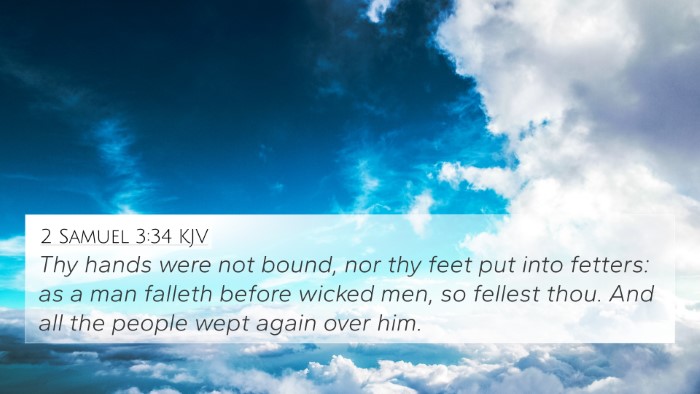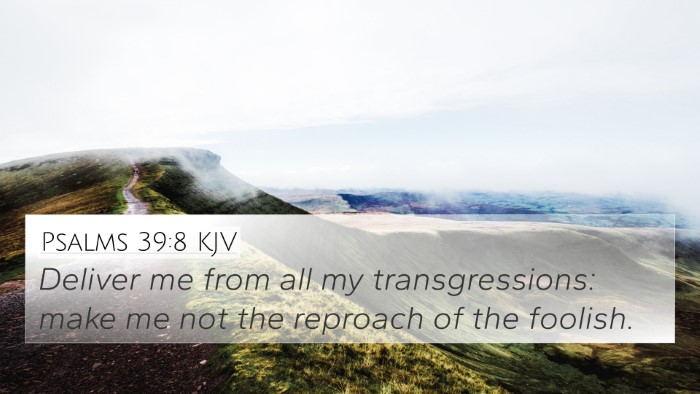Understanding 2 Samuel 11:21
Verse Quote: "Who smote Abimelech the son of Jerubbesheth? did not a woman cast a piece of a millstone upon him that he died in Thebez? why went ye nigh the wall? then say thou, Thy servant Uriah the Hittite is dead also." (2 Samuel 11:21 KJV)
Verse Context and Interpretation
The verse occurs in the narrative of King David’s notorious sin of adultery with Bathsheba and the subsequent arranged murder of her husband, Uriah the Hittite. It presents a moment when Joab, David's military commander, sends back news of the battle, indirectly highlighting the ruthlessness of David’s command to ensure Uriah's death.
Commentaries on the Verse
- Matthew Henry: Henry emphasizes the tragic irony in the verse, noting how David, despite being a man after God's own heart, stooped to such low means to cover his sin. The mention of Abimelech serves as a reminder of the folly of putting oneself in harm's way due to pride.
- Albert Barnes: Barnes offers insight into the rhetorical questions posed in this verse, suggesting they imply a condemnation of David's actions. By referencing Abimelech's death, he illustrates the gravity of engaging in such destructive behavior without thought for the consequences.
- Adam Clarke: Clarke provides a historical context to the verse, discussing the significance of Uriah as a Hittite serving the Israelite king. This underlines the tragedy that an honorable man would be betrayed so horrifically by his king for David's own selfish desires.
Key Themes and Connections
This verse is rich in themes of sin, betrayal, and the consequences of one’s actions. It invites readers to reflect not only on David’s moral failure but also on God’s justice.
Cross-References
To deepen our understanding of this verse, we can explore several biblical cross-references:
- Judges 9:53-54: The story of Abimelech’s death provides a parallel, emphasizing the idea of divine retribution for evil deeds.
- 2 Samuel 12:9: Here, Nathan confronts David about his sin, directly acknowledging Uriah's unjust murder.
- Psalm 51: Written by David post-confrontation about his sins, this Psalm expresses repentance and a desire for forgiveness.
- Matthew 1:6: This verse includes Uriah’s wife, Bathsheba, in the genealogy of Jesus, connecting Old Testament sin with New Testament grace.
- 1 Kings 2:32: Solomon’s response to Joab’s past deeds reflects the ongoing consequences of David's initial actions.
- Romans 6:23: The verse succinctly articulates the principle that sin leads to death, echoing the dire outcome seen in David's narrative.
- Galatians 6:7-8: This passage cautions against deception in judgment, as it is mirrored in the unfolding consequences of David's command.
- Ecclesiastes 8:11: Reflecting on the slow reaction of divine justice, it hints at the consequences of unchecked sin.
- Isaiah 53:5: Signifying that through transgression, a greater sacrifice is to come, linking Uriah's death with the ultimate sacrifice of Christ.
- Proverbs 28:13: This warns about the inability to hide sin, an underlying truth behind David's covert actions.
Conclusion
2 Samuel 11:21 serves as a profound moment of reflection on the destructive power of sin and the moral failings of a leader. The intertwining of narratives from the Old and New Testaments reveals the continuing implications of these actions, emphasizing how God’s justice prevails throughout history. Understanding this verse through cross-referencing with various scriptural texts can enhance our grasp of its profound messages and themes.
Additional Resources for Bible Study
For those seeking to delve deeper into the connections among Bible verses, consider utilizing the following resources:
- Tools for Bible cross-referencing
- Bible concordance for exploring themes
- A structured Bible cross-reference guide for detailed studies
- Methods for cross-referencing Bible verses to enhance understanding
